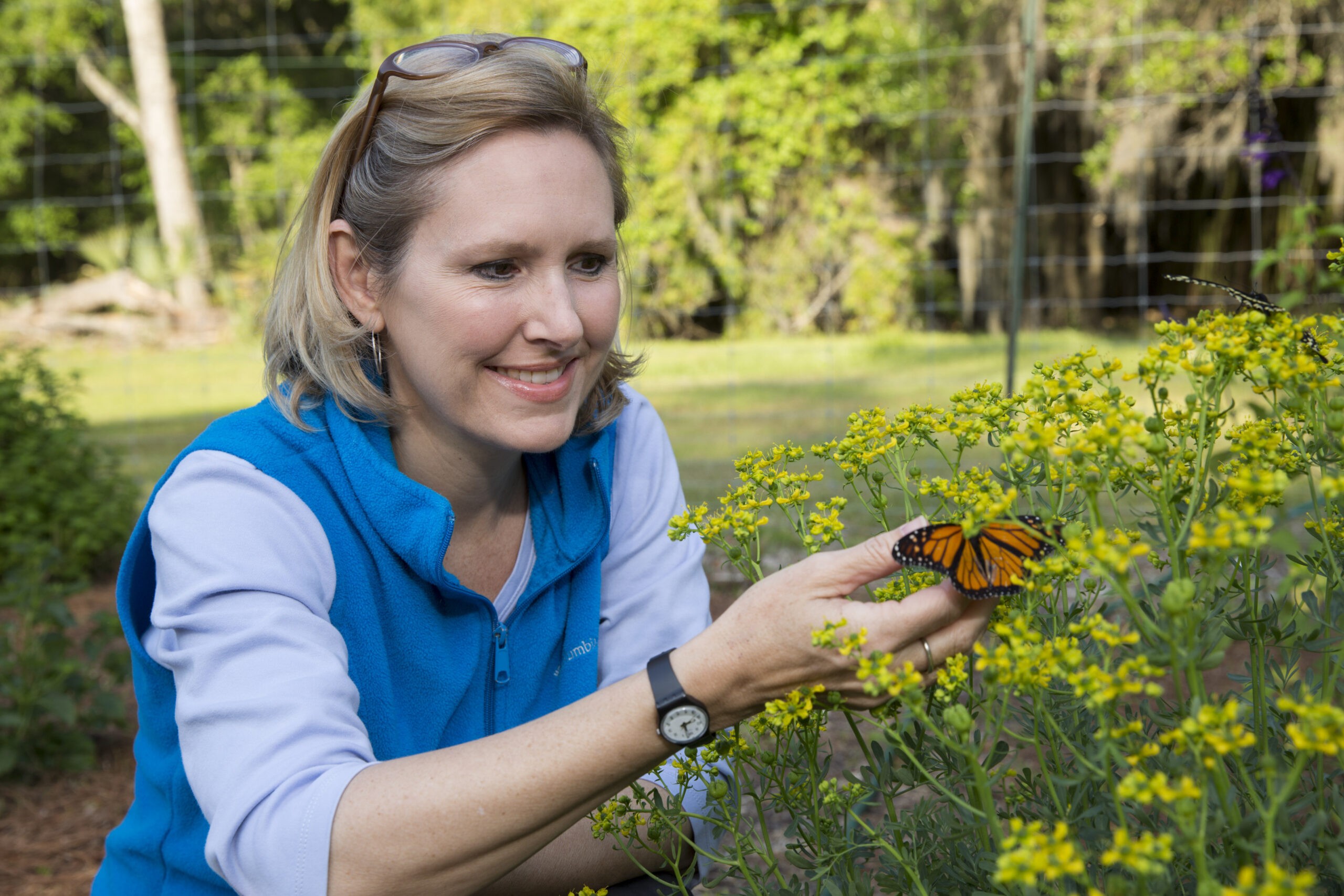Sonia Altizer, the Martha Odum Distinguished Professor of Ecology, is probably most recognized for her work with the colorful monarch butterflies that have been the cornerstone of her 30-year career so far. Her research has painted a vivid picture of the migratory, milkweed-munching monarch, and how its migration is changing in response to suburban gardens in the southern U.S.
Adding to our knowledge about monarchs and a disease that threatens them, involved data generated experiments, field studies, and the community science-based Project Monarch Health, which involves hundreds of volunteers in monarch monitoring each year.
As Altizer shifts her academic home from the Odum School of Ecology—where she has taught classes, led research and served in nearly every administrative role over the past 20 years—her work with monarchs will continue. Over the summer, Altizer and her lab will move to UGA’s College of Agricultural and Environmental Sciences, where she will serve as the head of the Entomology Department.
“Dr. Altizer has had an enormous impact on the Odum School of Ecology during her time here,” said Mark Hunter, dean of the Odum School. “Across the board, from research to teaching to service and outreach, Dr. Altizer has excelled in everything that she does. While we are all sorry to see her leave the Odum School, we are excited to know that she’ll be just up the road in Entomology.”
An exciting opportunity
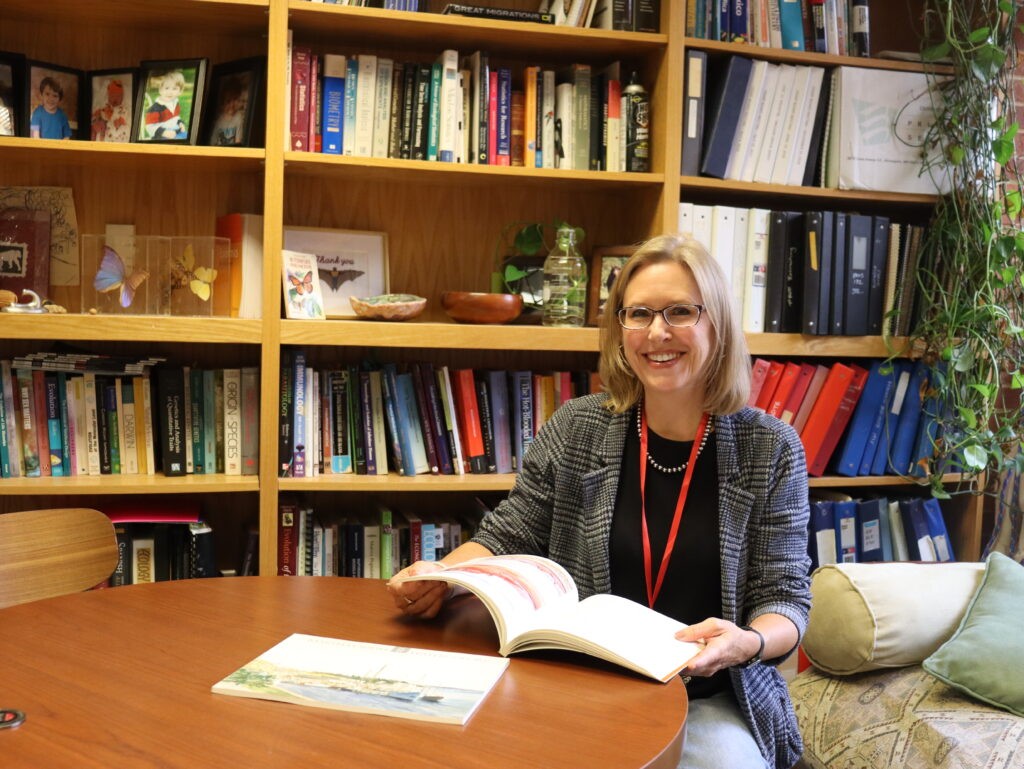
Pej Rohani chaired the search committee that added Altizer to UGA’s ecology faculty 20 years ago. He remembers thinking it was a coup to attract such a promising scientist.
“Over the years here, she’s done that thing which is very difficult. She’s maintained a stellar research program focused on an important question, trained people who have gone on to be world-class researchers in their own right, while serving as one of our very best instructors” said Rohani, a Regents’ Professor, UGA Athletic Association Professor and Associate Dean for Academic Affairs for the Odum School.
Though her lab is known for work with monarchs, Altizer has supervised research focused more broadly on animal-parasite interactions—how social behavior, seasonality, genes and other factors affect disease transmission—whether it’s in chimpanzees, birds, bats or other creatures.
Altizer mentored 19 Ph.D. students, seven M.S. students and more than 70 undergraduate researchers, a job that constantly pushed her to consider new study systems and look for collaborators across the college and campus.
The breadth of work happening at UGA to understand infectious disease in plants and animals, as well as the critical mass of expertise in ecology as a discipline, is what attracted Altizer to UGA in the first place.
She arrived at UGA from Emory University in 2005—a time when the ecology program and UGA were approaching major changes.
The Institute of Ecology was administratively managed through the College of Environment and Design then, but within two years the unit would break off into a stand-alone school.
“To be part of a community of scholars at UGA, where I worked with 30 people who were all ecologists—that was so exciting to me. I went from being the only ecologist in my unit to being one of 30, so I could really do so much to develop new projects,” she said.
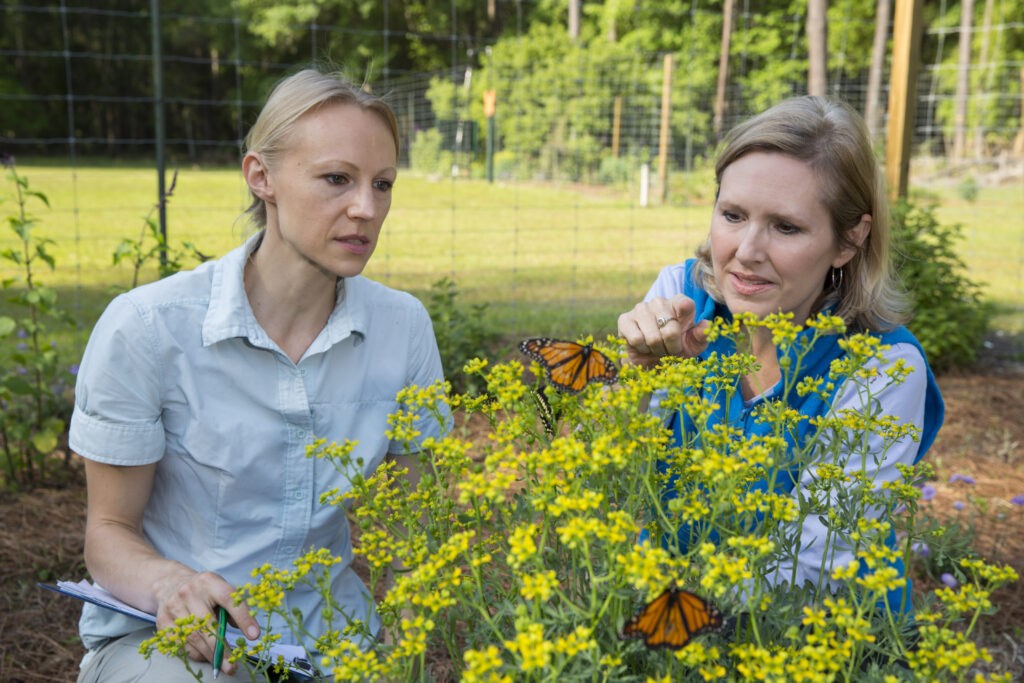
It also was the start of a big wave of university-wide hiring for experts in infectious disease.
“All across campus from vet medicine and public health to ecology and genetics, programs were adding infectious disease researchers. All of these hires were coming in, people studying infectious diseases around the world and from all different aspects,” she said.
That was exciting for her own work, Altizer said, but it also opened the doors for graduate students she might advise.
“I could bring a graduate student who wanted to study salmonella and wild birds, or viruses infecting bats, and I was confident that I could put together a group of people to help build that project and advise that student because I knew that there’d be those people here on campus,” she said.
New roles
Alongside those teaching and research roles, Altizer served in a variety of administrative positions at Odum, helping to shape everything from curriculum to facilities to faculty hiring.
She served as associate dean for academic affairs (2012-17), academic coordinator (2017-19), associate dean for research and operations (2020-21) and, in some of the roughest years during the COVID-19 pandemic, as interim dean from 2021-23. During those two years, the school updated facilities for research, instruction and collaboration and recruited five new faculty members to join the school. In October 2023, Altizer was named the Odum School’s Director of Public Service and Outreach.
“As interim dean, she was set very high standards while always remaining compassionate about the concerns of the community,” Rohani said. “She did her best to provide as predictable an environment as could be managed during a turbulent time in the world. And did all of that with a smile.”
Altizer approaches administrative challenges with energy, even when the problems are difficult or solutions bring few accolades, said UGA Athletic Association Professor and Associate Dean for Research and Operations Jeb Byers, who has known Altizer since their undergraduate days at Duke University. (They both graduated in 1992.)
“She’s primarily an ecologist, but Sonia seems to appreciate the impact that she can have in administration, even when she’s dealing with the less exciting parts of the job, like facilities,” Byers said.
Altizer’s involvement will have a lasting influence, according to Richard Hall, associate professor with a joint appointment in the Odum School and the College of Veterinary Medicine.
“Beyond her scientific contributions, Sonia has played an integral role in shaping the Odum School and the respectful, collaborative and social culture we all value here,” he said.
Accolades and alumni
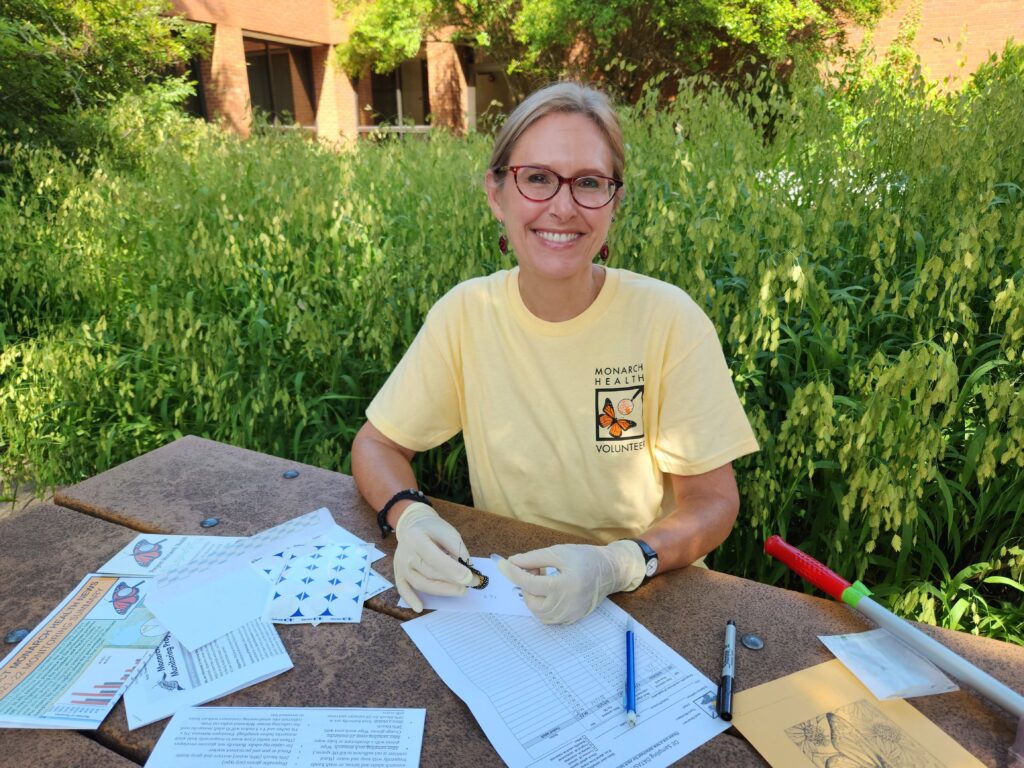
Altizer’s impact as a researcher has been recognized numerous times, most recently as a 2025 UGA Distinguished Research Professor. In 2024, she was named a Fellow of the Ecological Society of America, and in 2020, she was named a Fellow of the American Association for the Advancement of Science. In 2008, she received the National Science Foundation’s Presidential Early Career Award in Science and Engineering.
Altizer has authored more than 120 publications, including a book on infectious diseases of primates and co-edited books on monarch butterfly ecology and conservation, and animal behavior and infectious disease. She’s written important synthesis articles on infectious disease dynamics, including a 2011 paper on animal migration and infectious disease risk that was published in Science and has been cited more than 1,000 times. She contributed to the global mammal parasite database, which led to an international research coordination network hosted at Odum.
But, Altizer said, she is particularly proud of the graduate and undergraduate students she’s mentored through research projects.
“It’s gratifying to see those students go on to graduate studies or other really interesting careers,” she said.
Several of those graduates keep close ties with the Odum School and even serve on the alumni board.
“Dr. Altizer is a key reason I stay involved with the Odum School after graduating,” said Stuart Sims (BS ‘16), a data scientist at The Motley Fool, an investment company. “The direct research experience with Project Monarch Health and Wormsloe Historic Site, seeing the passion and thoughtfulness of graduate students and post-docs in the lab during that time, and seeing Dr. Altizer’s involvement across all facets of the labs functioning were such formative experiences that I am excited to give back some time and energy now.”
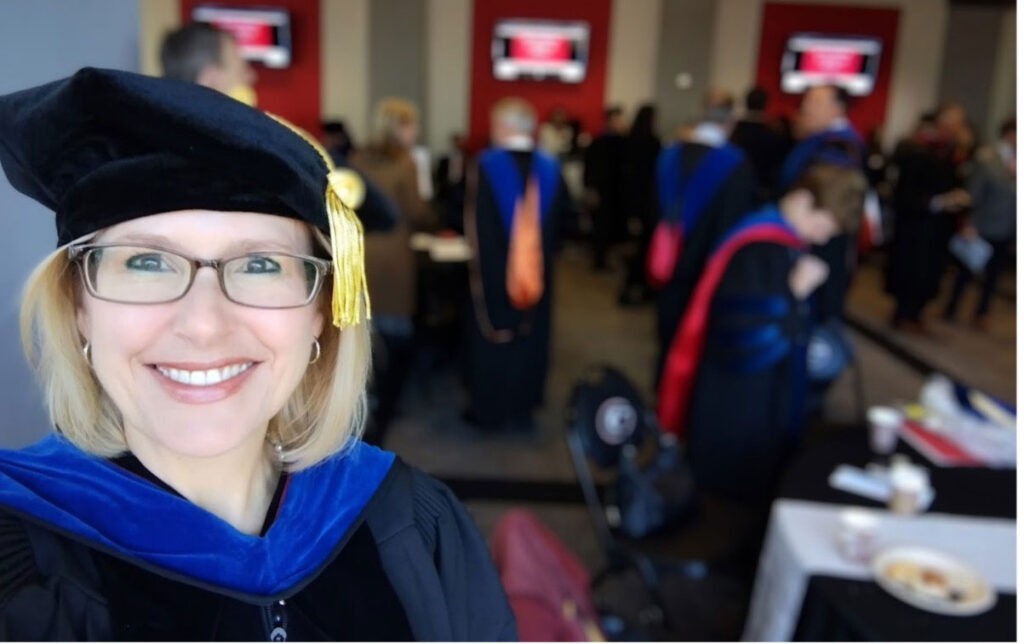
Migrations
In April, Altizer presented “The future of animal migrations in a changing world” as part of the Ecology’s Spring Seminar Series, giving students and faculty the chance to wish her well.
“While I think we will all be sad not to see her daily around the ecology building, I think this is an exciting chance to forge closer links between the ecology school and entomology department,” Hall said. “And personally, I’m also thrilled to retain a great collaborator, mentor and friend here at UGA.”
For Altizer, the move to entomology is a transition, rather than an ending. As she noted in an email sent to the Odum School during her last week, she will only be a 7-minute walk away.
“I treasure my time in Ecology and am grateful for working with all of you as colleagues,” she said. “Thank you for making these last 20 years an incredible and rewarding journey.”

